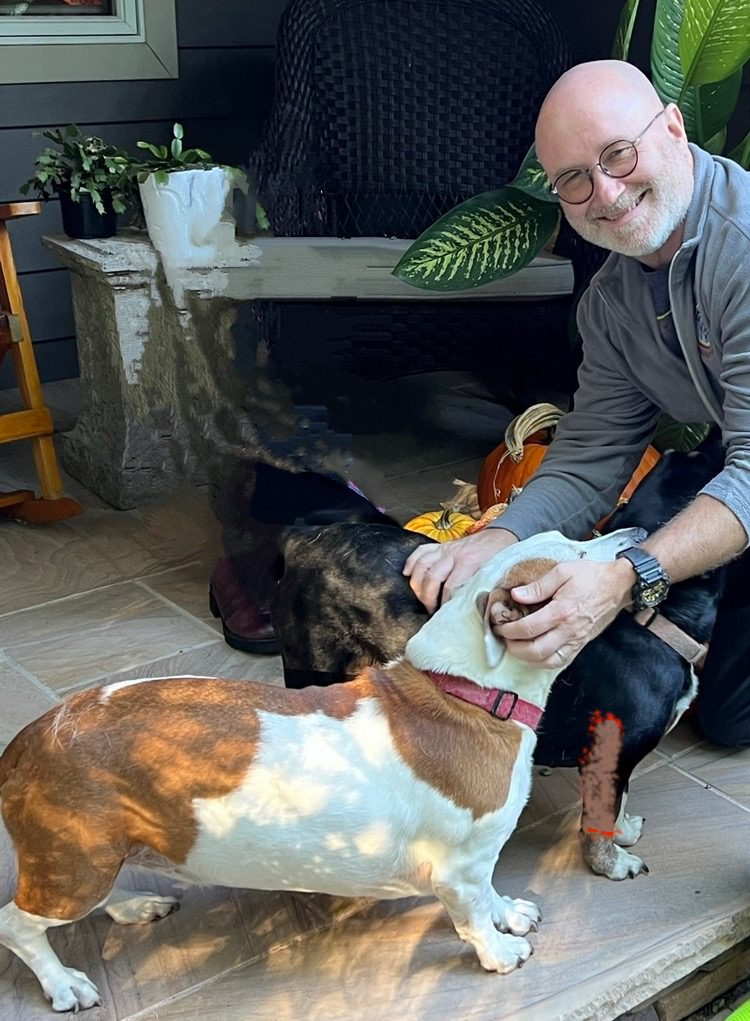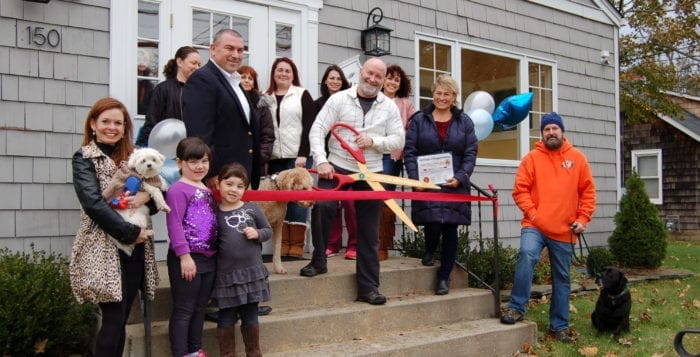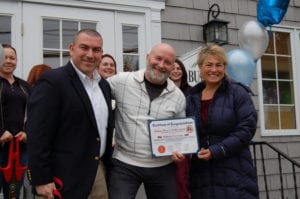
Long Island veterinarians are scratching their heads, unsure of whether reports of a new and as yet poorly-defined respiratory illness in dogs is a new threat or whether the ongoing talk is something of a shaggy dog tale.
“No one knows what it is,” said Steven Templeton, a veterinarian at Animal Health & Wellness in Setauket. “Nobody seems to have a clue. Some suggested it was a weird new bacteria, while others suggested it was viral.”
As of now, a potential respiratory infection, which hasn’t been well-defined and differs in its origin depending on whom you ask, could be contributing to making some dogs in other parts of the country sicker than they might otherwise be from the usual assortment of canine maladies that strike at this time of year.
Templeton has seen an increase in respiratory cases in his practice, although none of the cases has become severe.
Some of the illnesses he’s treated are coming from dogs that have no known exposure to other dogs, which “makes you wonder if they’re not catching it from dogs, and if they’re catching it from people,” Templeton added. “It could be a variant of the flu or COVID.”
When Templeton graduated from veterinary school in 1989, he said the conventional wisdom was that dogs didn’t give people viruses and vice versa. Now, he said, that’s turned around, and humans and their best friends can and do share illnesses.
With conflicting reports that this illness could be viral or bacterial, the infection could be a grab bag description for more than one health threat, Templeton said.
As of now, this mysterious dog illness has reportedly affected dogs in 14 states.
At Animal Emergency Services in Middle Country Road in Selden, veterinarian Melody Ribeiro has had one pneumonia case in a dog, which was straightforward in its treatment.
The dog recovered.
Advice for dog owners
Dog owners have been asking about reports of this infection.
Ribeiro suggested people who are planning to travel check out the facility where they are bringing their pet to make sure they know how the dogs are handled.
Vets also recommended asking kennels or other boarding facilities if they isolate dogs who are coughing or might be contagious.
Templeton, who finds someone who can care for his dogs at home when he travels, added that minimizing group dog contact at this point might also help.
Similar to the advice health care providers who work with people offered during COVID, veterinarians suggested that dog owners should take special precautions with beloved pets who might be in vulnerable categories or who have underlying medical conditions.
Dogs who are particularly young or old, have conditions that weaken their immune system, have poor organ function or are not fully immunocompetent should stay away from gatherings where they might contract viral or bacterial infections.
“We say the same thing for animals that we say for humans for COVID,” said Templeton. “If they have underlying issues, stay away from public [gatherings]. They could be asking for trouble.”
Other dog challenges
Apart from the threat of one or a combination of infections, veterinarians also suggested that dogs continue to struggle with the carry-over from a pandemic that kept many of their human friends home for extended periods of time.
Dogs “feed off the emotions of their owners,” said Templeton. Owners who are stressed or who are angrier than normal can bring tension into their homes that can make their dogs act out.
Dog owners are increasingly asking veterinarians for drugs to help their dogs cope with anxiety or emotional problems.
“The drug approach is minimally effective,” Templeton said. He urged people to get their dogs training and to work with their pets to minimize their distress.
“Anxious owners have anxious dogs,” added Ribeiro.
Holiday risks
During the holidays, dogs can also get into foods they shouldn’t eat, which can lead to pancreatitis, Ribeiro said.
With the legalization of pot, dogs are also consuming products that have tetrahydrocannabinol, or THC.
The accidental consumption of THC has occurred over the last few years, with dogs coming in who need medical attention, Ribeiro said. Veterinarians urged people to be cautious about where they store their gummies or other products that might prove an irresistible attraction to their dogs.






